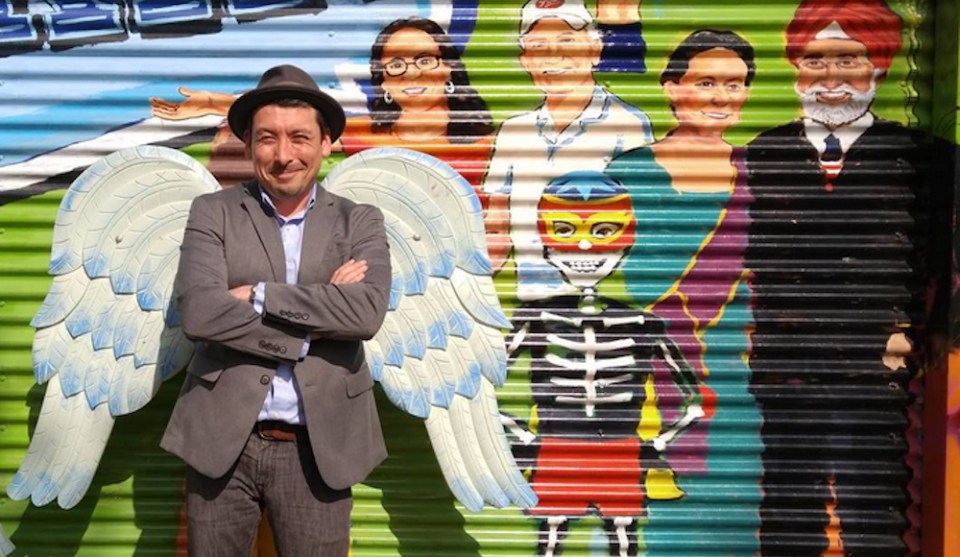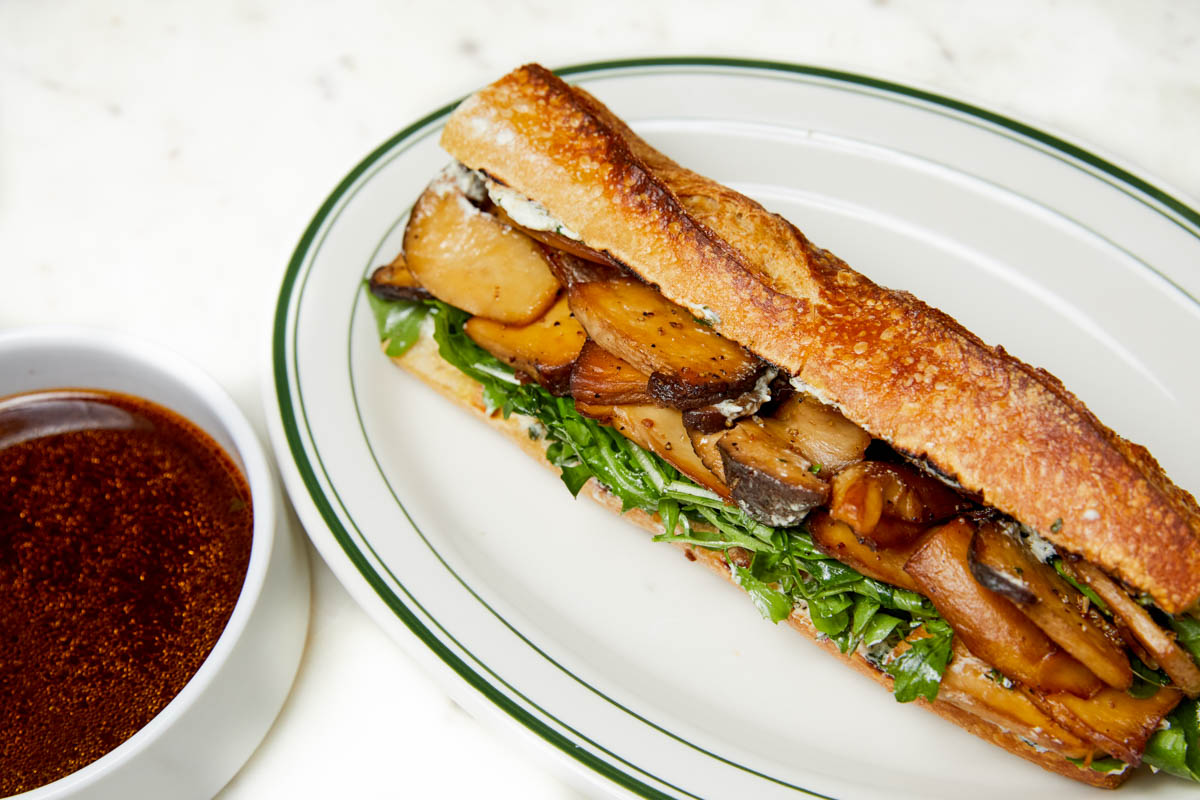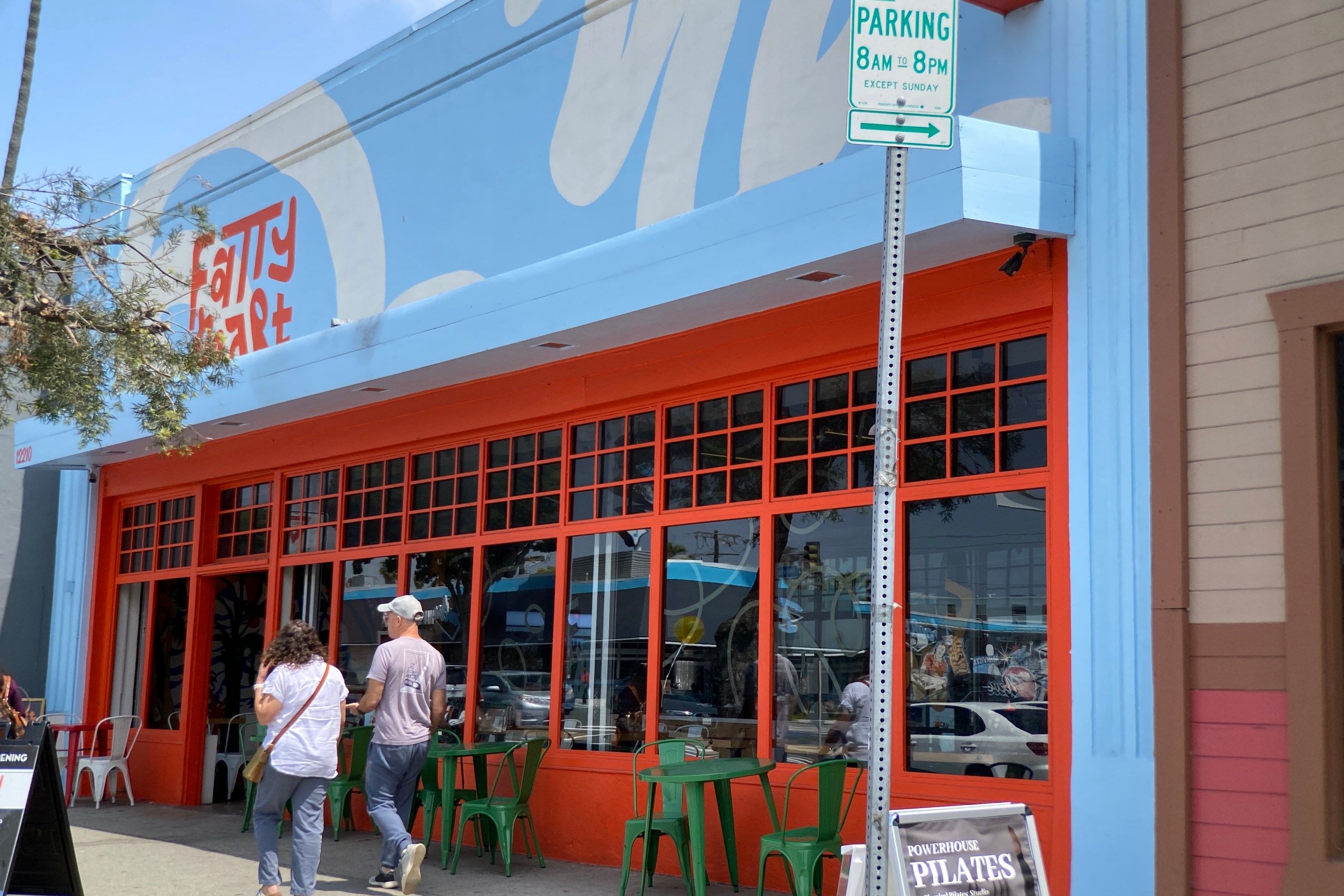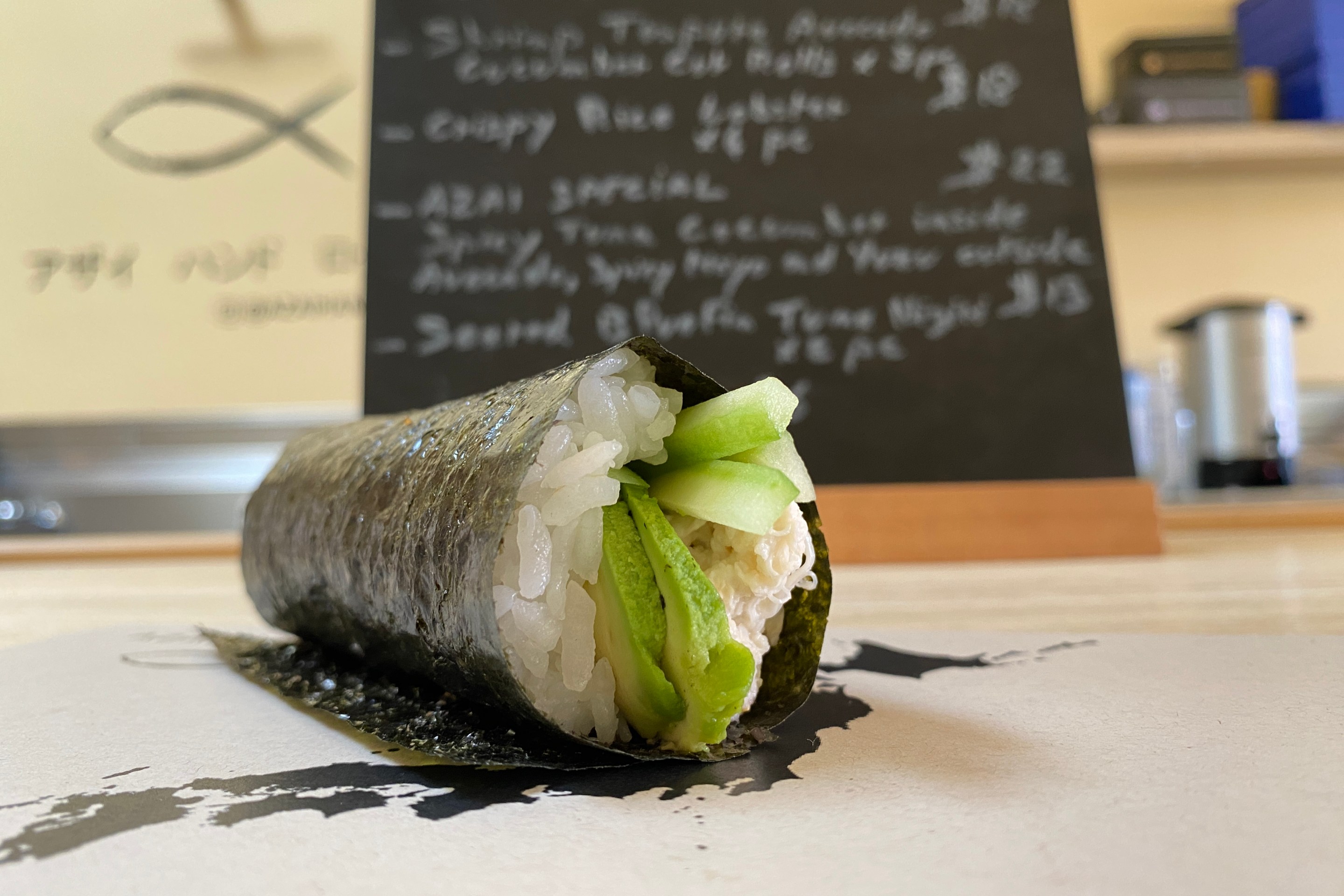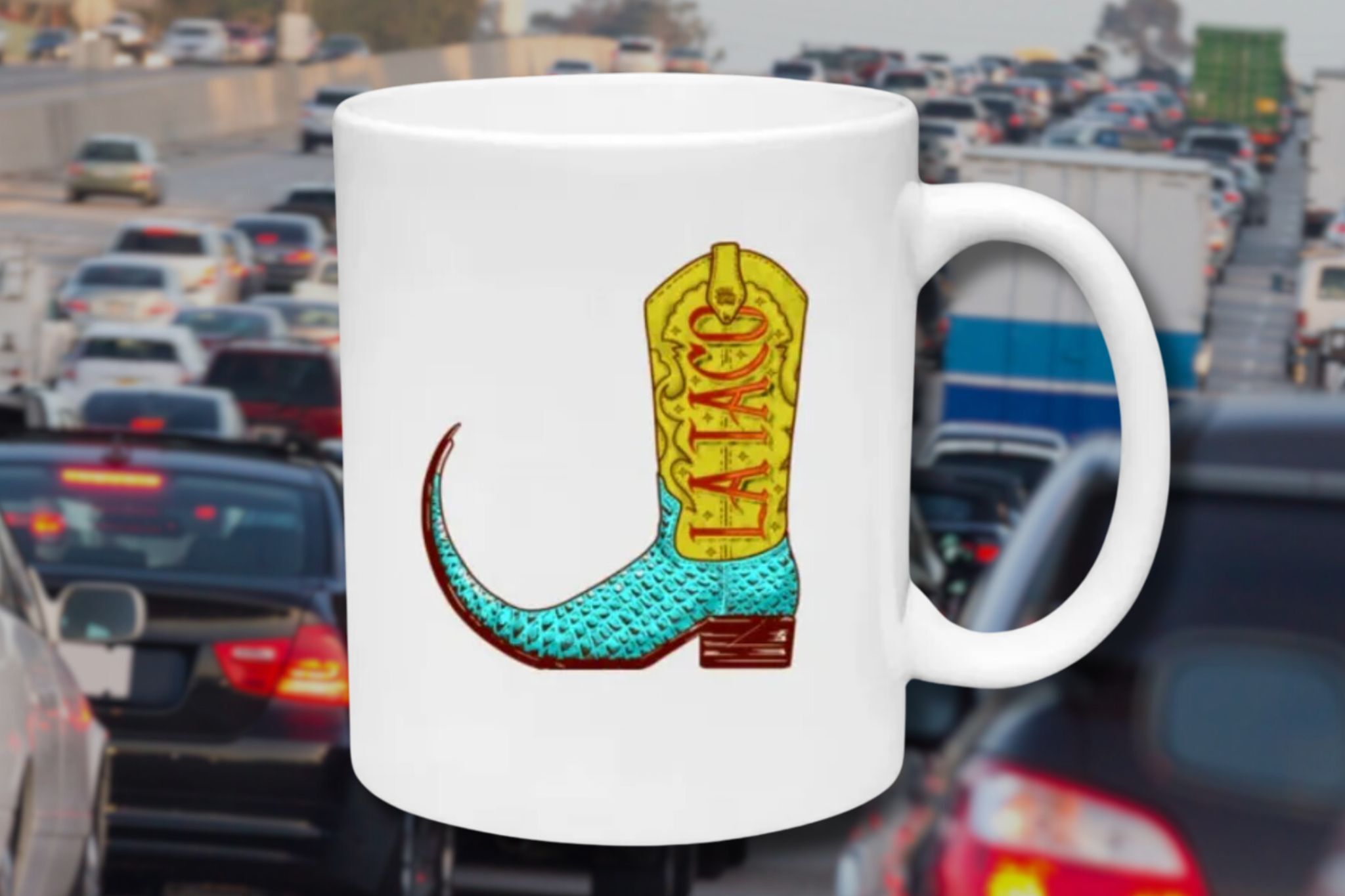[dropcap size=big]A[/dropcap]bout two and a half years ago, Steven Alvarez was a rather-anonymous assistant professor at the University of Kentucky, ready to teach a new course: Taco Literacy, the idea that you can “read” a taco to reveal fascinating histories.
Today, Alvarez is a professor at St. John's University in Queens, and his course is world-famous — no, seriously. His Instagram account, appropriately titled Taco Literacy, has him showcasing tacos from Yucatán to Jackson Heights. He'll be in conversation with me this Wednesday, June 6, at UC Irvine at its Anteater Test Kitchen, Anteater Recreational Center (ARC) 2nd Floor, 680 California Ave., Irvine.
The event is FREE, but you need to register in advance to attend. See you there!
I've asked you this a million times, so why not once more? Explain your concept of “taco literacy.”
I think of taco literacy as understanding how language, history, and foodways come together as social practices. For that, I think of literacy as less something folks have, and more what folks do with language, and what historically they done with language, For taco literacy, this also implies how different languages come into contact through food, and how we can understand these power dynamics cultures through foodways. It's being able to make meaning and understand how meaningful language and food are to making relationships.
With tacos, they can be read in this way, but we need not limit this to tacos. Further it would be something like foodways literacies, but the taco is one of the more fascinating ways to approach Mexican foodways. I follow the traditions of social sciences when I define that as the social, economic, and cultural practices that intersect history and traditions through the production and consumption of food. I add literacy to this to also bring in the study of language practices.
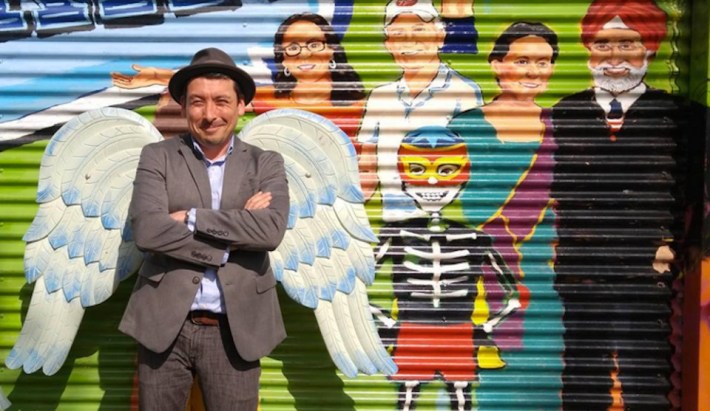
Why do you think people are so enamored with the idea?
Number one, because people love tacos, and more than that, they love Mexican food. This may not be the same for Mexican people, unfortunately, But see, there's still a kind of curiosity where folks can approach cultures through food, and that's an important opening to establish more humanizing relationships with people. For the idea of studying tacos, when folks get to thinking about understanding foodways as a concept and way of understanding histories and traditions, they can see all foods have stories, but those stories always involve people. Getting to the social aspect of these histories, and how these histories tell social stories, that's the turn I make in the class.
But remember, this is a writing class, and to get students to write about food is a great way to get them writing. In fact, I remember you mentioning somewhere on social media, something about asking students to write about music, and there they go--they have a lot to say. Claro! Same goes for writing about food, and writing about people and food in students' lives. Starting from there, that's I like to begin, and over the semester, with lots of practice, students develop their writing, also by hearing from some of the pros who tell them how they found their ways to writing about food.
People like the idea that they can study and eat, or study what they eat. And with that, really turning to their lived experiences in a critical way. This means thinking about how what they see as expertise can be tapped into. In the case of Mexican food, everyone in the United States has some experience, and with that we can look closer into how language, stories, and history come together to understand larger issues that affect Mexico and the USA. But really, why wouldn't someone want to take a class about tacos, as there is always so much to learn about them. And tacos are hot right now.
You just finished your first semester teaching taco literacy in NYC. How did the students react to it?
The students reacted as I knew they would: they loved the class, and I knew this when I heard some of them interviewed by Dan Pashman from The Sporkful. The students were able to speak about nixtamalization, NAFTA, the resilient histories of maize-based cultures in the face of European conquest. That made me super proud. And I'd say our lectures, those were pretty fantastic too. Let me jus say, bringing snacks to class, that set up a different kind of relationship with students. You can check out #tacoliteracy to see how thankful they were when I brought snacks to class to start off our discussions. The days when I brought chapulines, good times.
Back to the idea about improving writing: I saw that in the students' work too. An important part of this was from practicing on writing using Instagram and WordPress (where they made their own websites), but also hearing from pros.
Since we were in NYC, I was also able to invite some special guests to class. I invited writers Robert Sietsema of Eater, Victoria Bouloubasis, and Yigal Schleiffer of Culinary Backstreets to speak about their work and how they became food writers. I also invited Beatris Zapata, owner of Taqueria Coatzingo of Jackson Heights and Edwin Sanchez of Tlaxcal Kitchen of Queens to speak about Mexican foodways and their work. These were some of my favorite days because students were able to ask questions and hear from folks who have way more taco literacy than me.
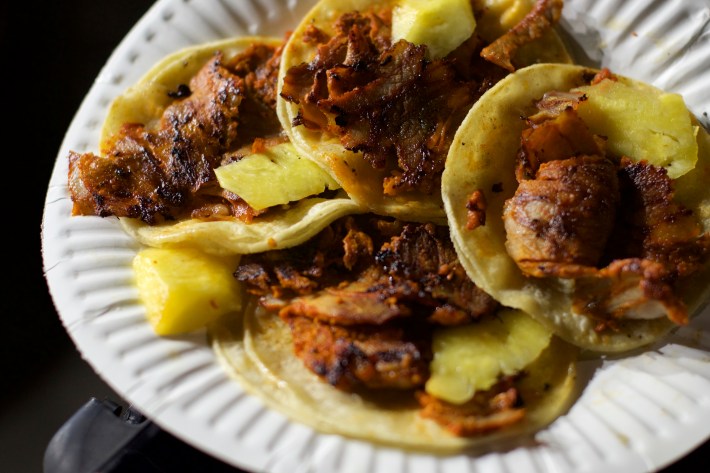
Taco scholars are increasingly getting more attention outside of academia. There's Jeffrey Pilcher at the University of Minnesota, who wrote two great books on Mexican food, and Sara Portnoy, who teaches students Spanish with food reviews. Who are some other taco profes that you think can cross over to the mainstream?
Pilcher is one of my heroes, and Sara Portnoy is doing amazing things with her students and their emergent bilingual learning with food. There are so many great scholars doing important work. Two scholars whom I think are due are Luz Calvo and Catriona Rueda Esquibel, cultural studies and lit professors who have written the cookbook Decolonize Your Diet: Plant-Based Mexican-American Recipes for Health and Healing. There were also a couple of scholars we read in Taco Literacy I'd suggest. One is Roberto Cintli Rodriguez, author of Our Sacred Maiz is Our Mother: Indigeneity and Belonging in the Americas whose book speaks to the centrality of corn in maiz-based cultures of the Americas. Another scholar I admire is Paula Morton, author of Tortillas: A Cultural History. She captures some of the dynamics of gender, power, and tortillas in ways that are clear in their complexity.
Last, a scholar I really admire, Alysia Galvez, whose new book Eating NAFTA: Trade, Food Policies, and the Destruction of Mexico is coming out soon. That's going to be a good one. All of these scholars have important messages and ways of doing scholarship that make points of connecting to communities. Those scholars who are community-minded in their orientations, they are the ones I would hope become more recognized by audiences beyond the academy.
You've actually never spent much time exploring Southern California's Mexican food. What do you plan to hit up while you're here?
Burritos, as many as possible. Oh yes and guisados, and I think I found some Oaxacan spots that look good. Of course, in SanTana I understand that the La Mera Mera michelada at Alta Baja is something I'm looking forward to. And, well, as it worked out, we'll be staying fairly close to a King Taco and close enough to a second one. I'm basically looking forward to it all.
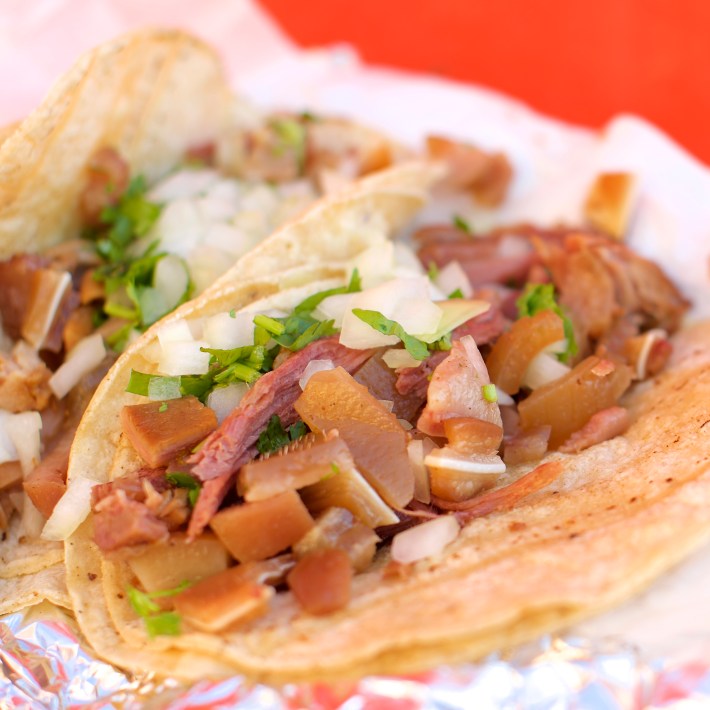
So, um, what are we going to talk about Wednesday at UC Irvine? And why should people go?
Number one, go because there will be food--but make sure to make your free reservation. The conversation will be about Mexican and Korean food, but I think speaking about how California and New York can be places where we can think about languages, foods and what this means in this turbulent political times. So we'll talk tacos, about the flavors that speak to Korean and Mexican folks, and share a meal where we think about foodways across cultures. We can probably talk about Spanish too. In Spanish, en español también lo que quieras, cabrón.
Finally, what's harder to read: a Taco Bell taco, or a taco árabe?
Not sure if either is harder to read, but both have their rewards for understanding further. I think the taco literacy you demonstrated in reading Taco Bell in your book captures how the stories of people behind the food, from the innovations to the taco shell, to the mass marketing of this US-style taco across the globe as Mexican food, there's a richness to understand decoding meanings of this taco. Same goes with the taco árabe, another rich history, one that also speaks to migration and culinary hybridity.
What I'd say about thinking of reading these tacos is not to ask about what's harder, but instead what can we learn by understanding each taco together? The stories of each repeat certain themes about innovation and hybridity, but also social aspects of history connected to the people, histories, and traditions of foodways.
